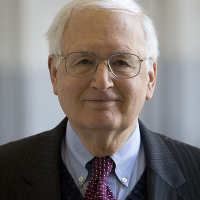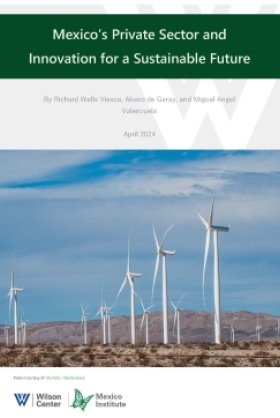An American Door Open? Maximizing the Benefits of Chinese Foreign Direct Investment
In 2010 alone, Chinese firms invested over $5 billion in the U. S. This new investment from China has the potential to create economic growth, jobs and new streams of tax revenues. However, despite an overall effective U.S. screening policy for inward investment, political interference and fearmongering threaten to divert legitimate and potentially beneficial investment deals. Authors Daniel Rosen and Thilo Hanemann discussed their groundbreaking study on China’s foreign direct investment. This comprehensive report makes clear there are reasons for concern but underscores the case for continuing to encourage most Chinese investments.
Overview
The Chinese share of international foreign direct investment has been growing over the last decade, and their investors have most recently made a substantial contribution to the development of emerging African nations. The uptick in Chinese participation marks a shift in the landscape of international investment more generally. Now, the developing economies are sending money towards their more established peers, changing the relationships and competitive nature of these economic ties. On May 4th Wilson Center on the Hill, joined by the Kissinger Institute on China and the United States (KICUS), and the Asia Society hosted a panel discussion on the implications of expanded Chinese foreign direct investment (FDI) for the United States and the global economy. Orville Schell, the director of the Asia Society Center on U.S.-China Relations introduced the discussion by noting the historical timeline of FDI and raising the question of the role of the United States in the market for investments.
J. Stapleton Roy, former U.S. ambassador to China and consulting director of the Kissinger Institute on China and the United States recognized that Chinese involvement in international economies is going to be a controversial issue, and noted the need for “informed debate on the question.” FDI was not a major factor until the last two decades of the 20th century, Roy explained, and as such its implications for American foreign policy are somewhat unexplored. The United States is one of the few countries in the world that has an almost equal balance of foreign direct investment, accepting nearly as much as it exports. China’s increasing role as the major international investor raises questions about its effect on the American economy and the competitiveness of the two countries.
China represents the “first time in a long time” that the United States has faced a major rival atop the for eign direct investment hierarchy, explained Daniel Rosen of the Rhodium Group, one of the two authors of An American Door Open? Maximizing the Benefits of Chinese Foreign Direct Investment. Rosen raised the questions of the stakes of increased Chinese power in international markets, the motives behind Chinese FDI in the United States, and whether the processes of gatekeeping are adequate to uphold American interests. His co-author Thilo Hanemann noted that Beijing’s position is changing rapidly, and highlighted China’s 28 percent holding of global cash reserves as an example of how its large savings rate can distort perceptions of its share of global gross domestic product. Since 2004, Chinese FDI has shifted its focus towards outflows of capital, focusing mostly on the developing world; the United States has not been a major recipient of Chinese FDI, even though Chinese hard currency reserves include large numbers of U.S. government bonds and other dollar-denominated securities. Of the $2.3 trillion FDI that has flown into the United States, China accounts for about 1 percent, with Europe and Japan contributing the largest shares. Hanemann and Rosen used their own set of “bottom-up” data, and found a greater number of investments that are not well reflected in the latest data. The Chinese are currently investing in 35 of 50 states, and Hanemann across a diverse array of industries. While a sizable majority of Chinese FDI comes from state run enterprises, Hanemann made sure to point out that there is an important minority of private institutions that participate in foreign investment as well.
eign direct investment hierarchy, explained Daniel Rosen of the Rhodium Group, one of the two authors of An American Door Open? Maximizing the Benefits of Chinese Foreign Direct Investment. Rosen raised the questions of the stakes of increased Chinese power in international markets, the motives behind Chinese FDI in the United States, and whether the processes of gatekeeping are adequate to uphold American interests. His co-author Thilo Hanemann noted that Beijing’s position is changing rapidly, and highlighted China’s 28 percent holding of global cash reserves as an example of how its large savings rate can distort perceptions of its share of global gross domestic product. Since 2004, Chinese FDI has shifted its focus towards outflows of capital, focusing mostly on the developing world; the United States has not been a major recipient of Chinese FDI, even though Chinese hard currency reserves include large numbers of U.S. government bonds and other dollar-denominated securities. Of the $2.3 trillion FDI that has flown into the United States, China accounts for about 1 percent, with Europe and Japan contributing the largest shares. Hanemann and Rosen used their own set of “bottom-up” data, and found a greater number of investments that are not well reflected in the latest data. The Chinese are currently investing in 35 of 50 states, and Hanemann across a diverse array of industries. While a sizable majority of Chinese FDI comes from state run enterprises, Hanemann made sure to point out that there is an important minority of private institutions that participate in foreign investment as well.
In an attempt to weigh the risks and benefits of Chinese involvement in the American economy—private or state-run—Rosen pointed to the eagerness of China; at meetings between the two countries’ economic advisers, the number two talking point is that “the U.S. is not receptive enough to FDI.” On a basic level, the net economic outcome is mutually beneficial, Rosen said, citing the success of Japanese car companies for creating jobs in America. The concerns particular to China, however, are the imbalance between the income they derive from holding U.S. debt and the return on FDI. Rosen noted that “China’s receipt of payment from foreign direct investment is paltry compared to its interest income." Restricting investment can hold back American companies looking for capital, and he could not find any reason that state-run investor should be treated differently by the regulatory scheme, because they can only present “the same set of threats we’re screening for.” The report, looked critically at the politicization of deals, and pointed to the appropriateness of the U.S. screening regime as “the most well-conceived and executed in the world.” Currently, the United States absorbs around 15 percent of global FDI, a nd could be poised to accept up to $100 billion if China increases its investment.
nd could be poised to accept up to $100 billion if China increases its investment.
Stemming from the economists’ report, they presented a series of recommendations for how to approach the growing FDI goliath of China. The report recommends a bipartisan message that is more encouraging of FDI and less ambivalent; they further recommended that policy promote investment in “benign sectors” and attempt a better understanding of China’s motives. A sharing of transparency requirements and better communication with China demystifies their attempts to invest, and increases what the two presenters conclude are mutually beneficial economic relationships that can be achieved through “clear thinking” amongst policy makers.
During the question and answer period, some were more skeptical of the benefits of Chinese investment. In the case the Japanese car companies, their investments brought new product and process technology. China is not yet at the stage to make that kind of contribution. The total number of jobs created by Japanese investments in a gross not a net figure – there were job losses in Detroit to Japanese competition.
For a number of years, the key parts of the U.S. civilian economy have been critical for the technological edge of the U.S. military yet may be beyond the current U.S. screening process that focuses on acquisitions that would have a direct effect on national security.
By: John Coit
Kent Hughes, Director, Wilson Center on the Hill
Speakers
Hosted By

Kissinger Institute on China and the United States
The Kissinger Institute works to ensure that China policy serves American long-term interests and is founded in understanding of historical and cultural factors in bilateral relations and in accurate assessment of the aspirations of China’s government and people. Read more
Thank you for your interest in this event. Please send any feedback or questions to our Events staff.











